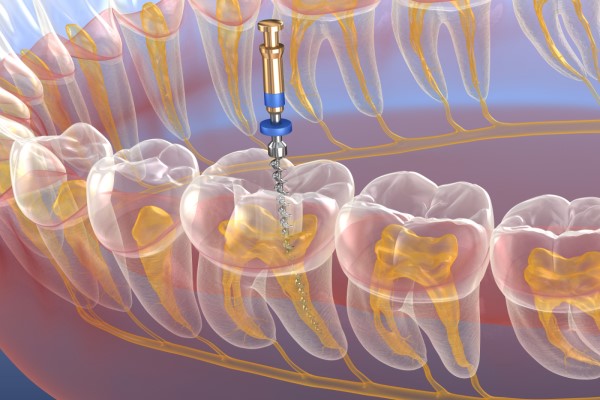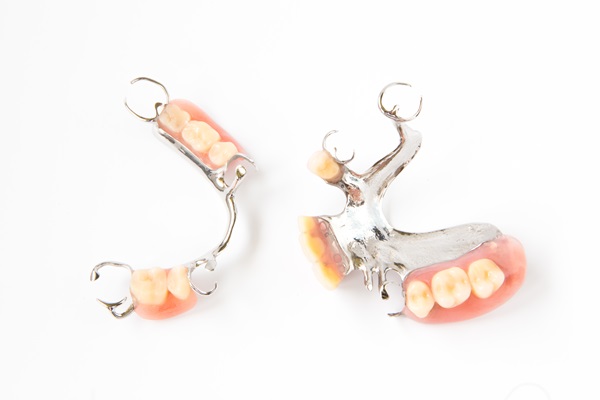What Dental Issues Do Root Canals Help Prevent?

A root canal is a procedure that can both relieve pain and prevent tooth loss, and nowadays, root canals are a common and painless procedure. If your tooth becomes injured or infected, bacteria can build up the inside of the tooth where the pulp and nerves reside. Left untreated, pain and sensitivity may become severe, and eventually, tooth loss may result.
What dental issues does a root canal help prevent?
The primary symptom a root canal helps prevent is pain due to untreated pulp or nerve damage. If the injury is not dealt with properly, it can result in tooth loss. Root canals are often recommended if tooth decay, physical injury, or a damaged tooth has resulted in nerve or pulp infection or inflammation. The pain might become sharp when the tooth is bit down on, it may become highly sensitive to hot or cold or vary in severity throughout the day. The surrounding gums could also feel swollen or tender.
The purpose of a root canal is to remove bacteria or decayed tissue residing inside the tooth. Untreated cavities are common reasons for this bacteria buildup.
What is involved in a root canal?
Persistent myths tend to pervade the perception of a root canal. Some of these originate from a 1920s study published in a respected dentistry journal that was discredited about three decades later. The dentist responsible for the flawed study denounced root canals altogether and recommended only tooth extractions should be performed.
Several falsehoods were born from this study, and some myths were created later. You may have heard that because root canals remove the nerves from a tooth, you will no longer be able to feel pain in the tooth. While you may feel pain before the procedure because of the infection or inflammation, a root canal is supposed to relieve this pain, not remove feeling completely. After a root canal, you may feel some sensitivity in the tooth for a brief period, but you will still be able to feel pain in the tooth from external sources. You will not lose all feeling, and the tooth can be repaired back to a fully-functioning state.
Perhaps the most persistent myth about root canals is that they are excruciatingly painful. This may have been the case before numbing agents were invented, but with modern advances in dental science, root canals are mostly or entirely painless. Before the procedure, local agents are used to numb the tooth and neighboring area via a needle. While you may feel a slight pinch when the needle is first used, you will only feel it for an instant before the numbing agent goes into effect. The dentist may use a rubber sheet called a dental dam to isolate the tooth and keep it dry during the procedure.
Your dentist will create an opening at the top of the impacted tooth and begin to clean the affected area. The damaged pulp is removed using small files, and the tooth will be irrigated to ensure all stricken pulp is washed away. Your dentist may use an antimicrobial solution to prevent future bacteria from forming. After your dentist is satisfied that the tooth is clean, they will dry the inside and fill it with a special material called gutta-percha. Finally, a temporary filling will be placed until a permanent crown can be installed.
Most root canals require two separate office visits, and the second is to install the crown. If your tooth is in good shape, no further action will be necessary, but occasionally a supporting beam will be used to ensure the crown remains stable after fitting.
Aftercare of a treated tooth is often minimal. Your dentist will recommend a healthy oral care routine to help keep the tooth and the rest of your mouth clean. This means brushing at least twice a day, flossing at least once a day, and showing up for regular dental visits for exams and professional cleanings. You may never need to worry about the tooth becoming infected again following this routine. Your dentist may also advise an X-ray to ensure all signs of infection in the treated tooth are gone.
Conclusion
You have a lot less to fear from a root canal than what can happen if a root canal is warranted but not undergone. Root canals can help prevent permanent damage to your tooth. As a safe, effective, and painless procedure, root canals can relieve pain and sensitivity when nerves or pulp in the tooth become infected or inflamed and prevent tooth loss.
Request an appointment here: https://sandimassedation.com or call San Dimas Family and Sedation Dentistry at (909) 305-2300 for an appointment in our San Dimas office.
Check out what others are saying about our dental services on Yelp: Root Canal Treatment in San Dimas, CA.
Recent Posts
A broken tooth can result from severe decay, cracks, or trauma. Continue reading to learn whether a dentist will recommend a root canal during the repair process. A broken tooth means a portion of the tooth’s structure above the gum line has come off. You should schedule a dentist appointment immediately after the incident to…
Root canal therapy is a procedure that allows dentists to save severely decayed, damaged, or infected teeth. The root canal procedure involves going to the pulp chamber of a tooth to remove the nerves, blood vessels, and connective tissues there. This brings an end to infections and protects against them. It also stops any pain…
The Greek words "endo" and "odont" stand for inside and tooth, respectively. An endodontic treatment or root canal treatment treats the inside of a tooth. If the pulp of the tooth becomes infected or inflamed, endodontic treatment becomes necessary. Root canals are typically suggested when a dentist believes the tooth is worth saving. Before treatment,…
It is important to treat a dental emergency as soon as possible to prevent any concern from worsening. This review discusses the different types of dental emergencies and how you can properly treat them.A dental emergency does not improve on its own. Fortunately, emergency dentists are able to treat oral health and dental trauma concerns…


